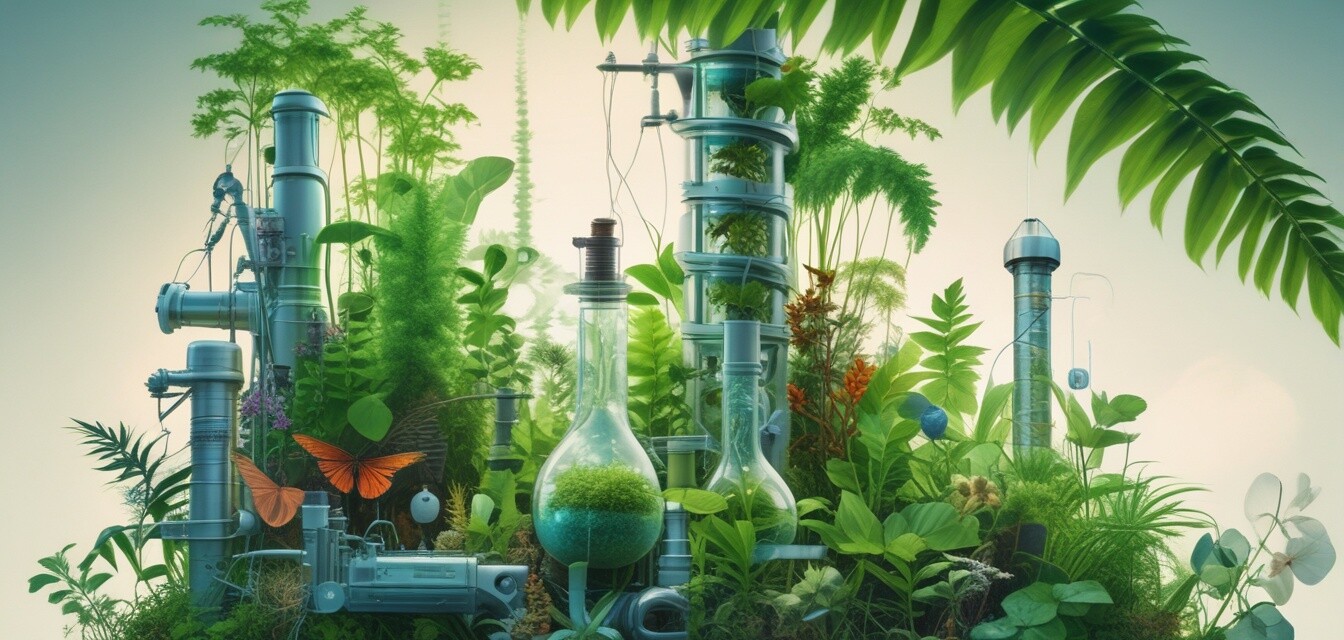
How Biotech is Shaping the Future of Herbal Supplements
Key takeaways
- Biotechnology is revolutionizing herbal supplement production methods.
- Innovative techniques enhance the efficacy of herbal supplements.
- Sustainable practices are being integrated into the production processes.
- Consumer awareness and demand for quality are rising.
- The future of herbal supplements is intertwined with advancements in science and technology.
As we navigate the evolving landscape of health and wellness, biotechnology, or biotech, is carving its niche in the production of herbal supplements. This article delves into how biotech is not just shaping the production but also enhancing the effectiveness and sustainability of herbal remedies.
The role of biotechnology in herbal supplements
Biotechnology employs cellular and biomolecular processes to develop products and technologies that improve our lives and the health of our planet. In the realm of herbal supplements, bioengineering techniques are changing the traditional approaches to sourcing and producing these valuable products.
Advancements in extraction methods
One significant contribution of biotechnology is in the extraction processes. Traditional methods often involve lengthy procedures that can compromise the quality and potency of herbal components. However, biotech innovations have enabled:
- Enhanced extraction techniques: Using enzymes to selectively extract desirable compounds.
- Eco-friendly solvents: Reducing environmental impact during the production process.
- Superior scalability: Allowing small batches to be expanded without loss of quality.
Genetic modification and improved efficacy
Through genetic modification, researchers can enhance the qualities of plants, enabling them to produce more potent active ingredients. This leads to:
- Higher yields: More beneficial compounds per plant.
- Targeted therapeutic properties: Plants may be engineered to emphasize specific health benefits.
- Increased resistance: Plants can be modified for greater resilience against pests and diseases.
Sustainability in the production of herbal supplements
As the demand for supplement efficacy rises, so does the need for sustainable practices. Biotechnology offers innovative solutions such as:
- Bioremediation: Using plants and microbial interactions to restore ecosystems that supply herbs.
- Vertical farming: Cultivating herbs in urban settings, reducing the carbon footprint associated with transportation.
- Waste reduction: Implementing processes to utilize by-products in herbal supplement formulations.
Consumer awareness and the ethical dimension
The increase in consumer awareness about sustainability and efficacy has led to a rise in ethical sourcing standards. Today, consumers prioritize:
- Transparency: A clear understanding of sourcing, production, and claims made by manufacturers.
- Sustainability: Interest in how products are cultivated and processed.
- Quality assurance: Desire for certifications that back the herbal supplements they choose.
Future Trends in the Herbal Supplement Industry
As we look forward, several trends are positioned to have a substantial impact on the herbal supplement market:
| Trend | Description | Impact |
|---|---|---|
| Blockchain Traceability | Using blockchain technology to track the entire supply chain. | Increased consumer trust and transparency. |
| Customized Supplements | Creating personalized products tailored to individual genetic profiles. | Enhanced user satisfaction through targeted health benefits. |
| AI Analysis | Leveraging artificial intelligence to analyze herbal efficacy data. | Continuous improvement in formulation based on real-world feedback. |
Conclusion
As the intertwining of biotechnology and herbal supplements continues to evolve, it paves the way for enhanced products that are both effective and sustainably produced. The consumer is at the heart of this transformation, driving demand for higher standards and more transparency in the herbal supplement industry. To stay updated on these trends, explore our News & Trends section, which covers the latest in ethical and sustainable supplements.
Pros
- Innovative production methods enhance herbal supplement quality.
- Increased sustainability in sourcing and manufacturing.
- Higher consumer trust and awareness of herbal products.
Cons
- Consumer skepticism around genetically modified organisms (GMOs).
- Potential high costs of biotech-enabled supplements.